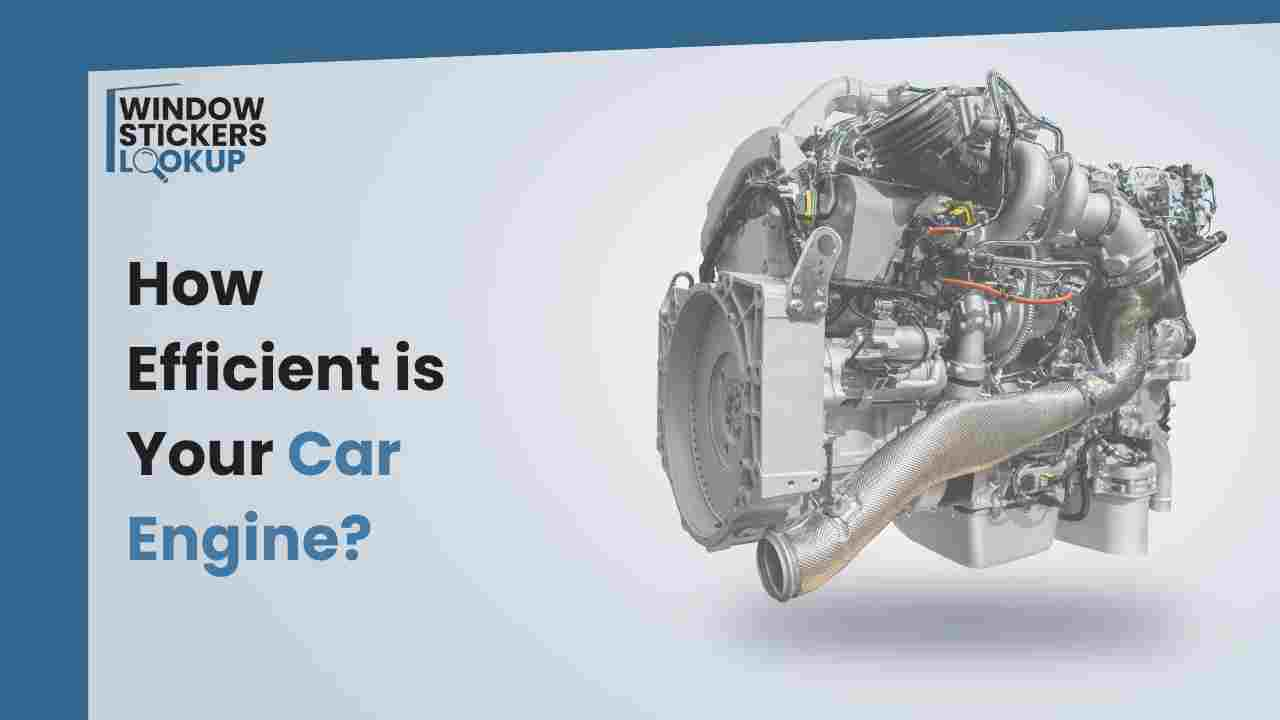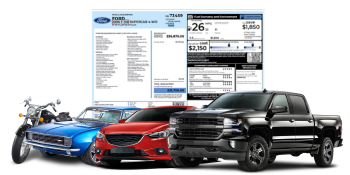When buying a car, engine efficiency plays a huge role. It indicates how effectively a vehicle uses fuel, impacting car safety, your wallet and the environment. A more efficient engine means fewer trips to the gas station and lower emissions and vice versa.
This article will help you learn about engine efficiency, the best types of engines to consider, and how your driving habits can improve fuel efficiency. Let’s get right into it.
The Future of Auto Fuel Efficiency
Car manufacturers are now focusing on fuel efficiency more than ever. As fuel prices rise and environmental concerns grow, everyone wants a fuel-efficient vehicle. This has led to automakers investing in advanced technologies, including hybrid engines, electric vehicles, and improved internal combustion engines.
Hybrid vehicles combine a gasoline engine with an electric motor, achieving higher fuel economy than traditional cars. Electric vehicles (EVs) run solely on electricity, eliminating fuel consumption altogether. The future looks bright for these technologies as they continue to evolve.
With these improvements, everyone can get much higher miles per gallon (MPG) than regular gas engines.
The Most Efficient Car Engine Types
When considering engine types, knowing which ones offer the best efficiency is essential. Here are some key players:
Internal Combustion Engines (ICE)
These engines burn fuel inside the engine cylinder. Most cars on the road today use ICEs. They can be efficient but often waste a lot of energy, such as heat. Modern designs have improved their thermal efficiency to around 20-40%.
Diesel Engines
Diesel engines are internal combustion engines that use diesel fuel instead of gasoline. They generally offer better fuel efficiency than gasoline engines, often achieving 30-50% thermal efficiency. This makes them a great choice for long-distance driving.
Hybrid Engines
As mentioned earlier, hybrids combine an ICE with an electric motor. They can switch between power sources based on driving conditions. This flexibility allows them to maximize fuel efficiency.
Plug-in Hybrids
Similar to hybrids, plug-in hybrids can charge from an outlet. They can drive longer distances on electricity alone, making them even more efficient.
Electric Motors
Electric vehicles use electric motors powered by batteries. They convert over 90% of electrical energy into movement, making them extremely efficient compared to traditional engines.
When considering a new car, one tip that can save you a lot of money is to look for the window sticker. It is a label that shows the car’s fuel efficiency and other important details. You can find it using tools like our window sticker by VIN tool.
READ ALSO: What is a Rebate on a Car? Complete Guide to Car Rebates
Improving Fuel Efficiency with Driving Habits
One important factor that significantly affects how much fuel your vehicle consumes is your driving style. Even if you find a fuel-efficient vehicle, with poor driving habits, you will still end up wasting fuel and money on the road.
Here are some habits that can help you save money at the pump:
Accelerate Gently
Rapid acceleration can significantly waste fuel, leading to higher costs at the pump. Instead of pressing the gas pedal down quickly, try to accelerate smoothly and gradually. By using a gentle approach, your engine works more efficiently and requires less fuel to build speed.
Not only does this help your wallet, but it also reduces wear and tear on your engine, which means your vehicle remains in good condition for a much longer period.
Maintain a Steady Speed
Another good habit to remember is maintaining a constant speed. Frequent changes in speed, such as speeding up and slowing down, can increase your fuel consumption. One tip you can consider here is using cruise control.
On highways, cruise control helps you maintain a steady speed without constantly adjusting the accelerator. This consistency means your engine operates more efficiently, allowing you to get the most miles out of every gallon of gas. Plus, it makes for a more relaxing driving experience.
Anticipate Traffic
Being aware of what’s happening around you can really help save fuel. Keep an eye on the road ahead to spot any changes in traffic.
If you see brake lights, start slowing down gently instead of slamming on the brakes. This not only saves fuel but also keeps you safer by giving you more control over your car. By easing off the gas early, you avoid hard braking, which uses more fuel and can wear out your brakes faster.
Avoid High Speeds
Driving fast can really drain your fuel. Most cars get the best mileage when you’re going between 45 and 65 mph.
If you go faster than that, your engine has to work harder, and you’ll waste gas. By sticking to this speed range, you can save money and reduce your carbon footprint. Plus, driving at a moderate speed makes your trip safer since you’ll have more time to react to anything unexpected on the road.
Coast to Decelerate
Coasting is an easy way to save fuel. When you see a red light or stop sign up ahead, take your foot off the gas a bit early. This lets your car slow down naturally without using extra fuel. Coasting not only helps you save gas but also puts less strain on your brakes, making them last longer.
By getting into this habit, you’ll enjoy a smoother ride, spend less on gas, and have better control of your vehicle.
In addition to engine types and driving habits, proper maintenance also plays a role in maintaining engine efficiency. Regular oil changes, tire inflation checks, and air filter replacements can keep your vehicle running smoothly and efficiently.
Using these tips can significantly enhance your vehicle’s fuel efficiency.
Conclusion
To get a fuel-efficient car engine, you must understand your car trim level, different engine types and how your driving habits affect performance. By selecting the right engine type and adopting better driving practices, you can enjoy significant savings at the pump while contributing to a cleaner environment.
If you’re in the market to buy a car, remember to view the specifications, features, fuel economy, and others with a window sticker. Dealers can also provide customized dealership window stickers to their customers. Get started with our tool and make informed decisions.









